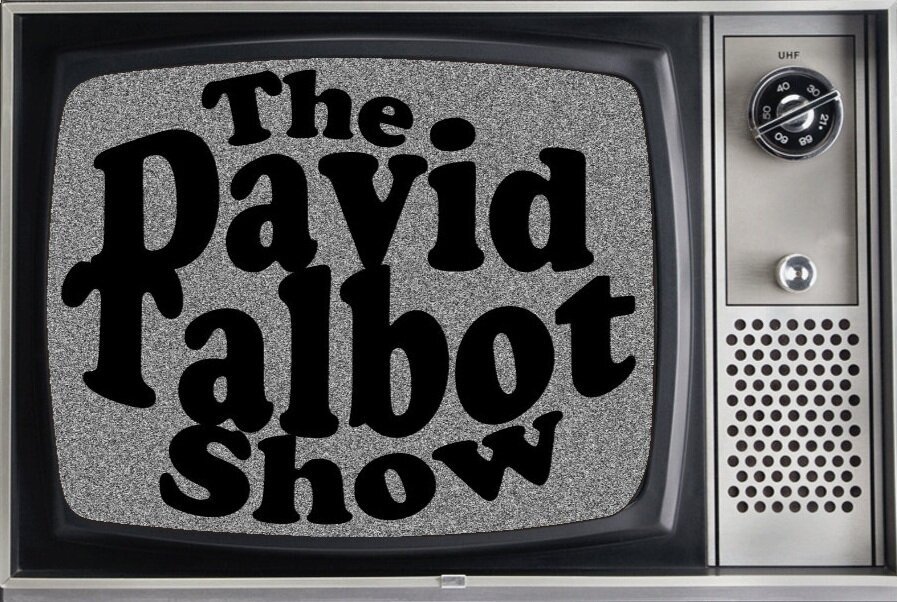JFK and de Gaulle: The TRUE Story
It took the New York Times over a week -- actually more than 20 years -- but the newspaper of record finally acknowledged that the fall of Afghanistan was an inevitable imperial defeat for the United States. Of course, the Times stuck the analysis of the "Unwinnable Conflict" on p. 6, filling up its front page with yet more hysterical articles about the woeful inner machinations of the Biden security team and the human tragedy of U.S. withdrawal, etc. etc. But score one for the Times for actually running such an honest assessment of doomed colonial power.
Unfortunately, the commentary by Adam Nossiter is marred by a predictably boneheaded mainstream media aside on JFK. Nossiter writes that wise old French President Charles de Gaulle warned young President Kennedy that Vietnam was a "bottomless military and political quagmire." But Kennedy "ignored him," according to Nossiter.
NO, NO. NO. Read some fucking history, New York Times pundits! De Gaulle didn't need to warn JFK about Vietnam because he already knew all too well what a "quagmire" it was. As a young Congressman, Kennedy had visited Vietnam during the French colonial war there, and he saw first-hand what a disaster it was. As President Kennedy's defense secretary, Robert McNamara, personally told me for my 2007 book "Brothers," JFK planned a complete withdrawal of U.S. military personnel after he won reelection in 1964 over hawkish Barry Goldwater. Kenny O'Donnell, Kennedy's top political aide in the White House, wrote the same thing in his memoir. And President Kennedy ordered a national security memorandum that spelled out his plans for a phased withdrawal of U.S. troops, whose number then only amounted to a few thousand.
The truth is that Kennedy and de Gaulle were both committed to drawing down their respective empires. When de Gaulle moved to end the savage French war in Algeria, he sparked a sharp reaction from military and far-right circles, including several assassination attempts and a coup. De Gaulle was convinced that the French military coup attempt against him in spring 1961 was instigated by the CIA. President Kennedy, already grappling with the CIA's Bay of Pigs disaster in Cuba, was forced to confess to the French ambassador that he was not in full control of his own intelligence agency.
When JFK was assassinated in Dallas, President de Gaulle confided to deputies that Kennedy was the victim of the same national security forces that had targeted him. De Gaulle's remarks on the Kennedy assassination were recorded by his former information minister Alain Peyrefitte for his memoir. Peyrefitte's memoir was published in France in 2002, but never translated into English nor published in the U.S.
Adam Nossiter and other American pundits are apparently blissfully unaware of de Gaulle's true convictions about Kennedy and the violent national security backlash that he suffered as result of his peace policies, including his plans to end the war in Vietnam. But I quote de Gaulle at length in my book The Devil's Chessboard. And for the record, I will do so again here:
“What happened to Kennedy is what nearly happened to me,” confided the French president. “His story is the same as mine. . . . It looks like a cowboy story, but it’s only an OAS [Secret Army Organization] story. The security forces were in cahoots with the extremists.”
“Do you think Oswald was a front?” Peyrefitte asked de Gaulle.
“Everything leads me to believe it,” he replied. “They got their hands on this communist who wasn’t one, while still being one. He had a sub par intellect and was an exalted fanatic—just the man they needed, the perfect one to be accused. . . . The guy ran away, because he probably became suspicious. They wanted to kill him on the spot before he could be grabbed by the judicial system. Unfortunately, it didn’t happen ex- actly the way they had probably planned it would. . . . But a trial, you realize, is just terrible. People would have talked. They would have dug up so much! They would have unearthed everything. Then the security forces went looking for [a clean-up man] they totally controlled, and who couldn’t refuse their offer, and that guy sacrificed himself to kill the fake assassin—supposedly in defense of Kennedy’s memory!
“Baloney! Security forces all over the world are the same when they do this kind of dirty work. As soon as they succeed in wiping out the false assassin, they declare that the justice system no longer need be concerned, that no further public action was needed now that the guilty perpetrator was dead. Better to assassinate an innocent man than to let a civil war break out. Better an injustice than disorder.
“America is in danger of upheavals. But you’ll see. All of them together will observe the law of silence. They will close ranks. They’ll do everything to stifle any scandal. They will throw Noah’s cloak over these shameful deeds. In order to not lose face in front of the whole world. In order to not risk unleashing riots in the United States. In order to preserve the union and to avoid a new civil war. In order to not ask themselves questions. They don’t want to know. They don’t want to find out. They won’t allow themselves to find out.”
President Kennedy and the First Lady visited President de Gaulle in May 1961, soon after he survived a coup attempt.

